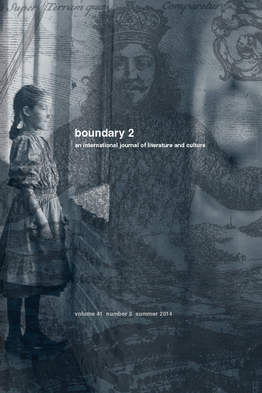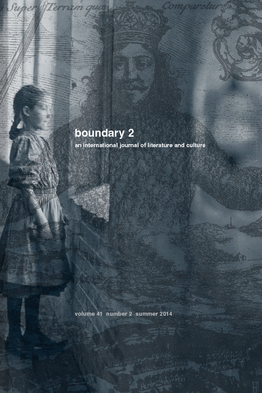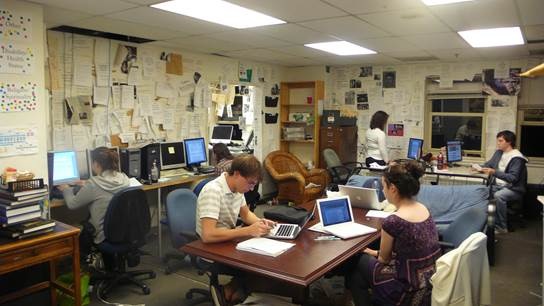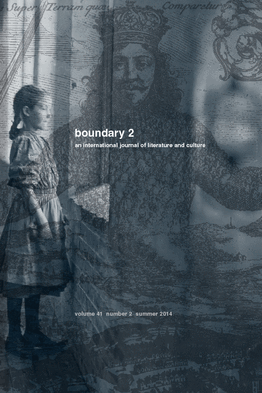Hans Ulrich Gumbrecht’s “The Future of Reading? Memories and Thoughts Toward a Genealogical Approach” asks a fundamental question: How does the younger generation of students and readers approach a text, and in which ways does their constant reading via one online device or another, as a ubiquitous electronic background activity, change their experience of interacting with the printed word? Gumbrecht bases his observations on two seminars that he taught in Santiago de Chile in 2013, in which Stanford undergraduates were reading fiction and nonfiction texts in both English and Spanish. While he notes that today’s younger readers possess breathtaking agility in identifying the key subject matters and problems of a text, he found their way of interacting with a text “endlessly puzzling.” Against a backdrop of the various methods and theories of reading from the past decades (e.g., deconstructive, cultural, hermeneutic), Gumbrecht asks what it means to have “everything always at hand” via various electronic forms of communication. If, for example, classic texts are those that have maintained their freshness and immediacy against the erosion of time, how is the electronic revolution, which makes the cultures and literatures of any time accessible to us, changing the “reading culture” of the younger generations? The questions and the argument developed in this essay go back to my contribution, on October 17, 2011, to the lecture series “How I Think about Literature,” in the Division of Literatures, Cultures, and Languages, at Stanford University.
Tag: Hans Ulrich Gumbrecht
-

The Future of Reading? Memories and Thoughts toward a Genealogical Approach
Read the full essay here.Summer 2014 -

Summer 2014: Volume 41, Number 2
In Memoriam of Stuart McPhail Hall
Each crisis provides an opportunity to shift the direction of popular thinking instead of simply mirroring the right’s populist touch or pursuing short-term opportunism. The left…must adopt a more courageous, innovative, “educative” and path-breaking strategic approach if they are to gain ground.
–Stuart Hall and Alan O’Shea, “Common-sense Neoliberalism”
Summer 2014: Volume 41, Number 2
Intervention / Mandela’s Reflections
Editor’s Note from Paul Bové:
…We decided to gather responses to Mandela as a political figure. b2 issued a call for very brief papers from several spots on the globe and from different generations. Our contributors have given us reason to feel this attempt was a success.Preface by Anthony Bogues
Mbu ya Ũrambu: Mbaara ya Cuito Cuanavale / The Cry of Hypocrisy: The Battle of Cuito Cuanavale by Ngũgĩ wa Thiong’o
Discomforts by Hortense Spillers

The Mandela Enigma by Wlad GodzichMandela, Charisma, and Compromise by Joe Cleary
Nelson Mandela on Nightline; or, How Palestine Matters by Colin Dayan
Or, The Whale by Jim Merod
Malaysian Mandela by Masturah Alatas
Mandela, Tunisia, and I by Mohamed-Salah Omri
Nelson Mandela by Ruth Y. Y. Hung
Mandela Memories: An African Prometheus by Ngũgĩ wa Thiong’o
Nelson Mandela: Decolonization, Apartheid, and the Politics of Moral Force by Anthony Bogues
Mandela’s Wholeness, Perhaps Infinite by Dawn Lundy Martin
[untitled] by Gayatri Chakravorty Spivak
Mandela’s Gift by Sobia Saleem
_____Three Models of Emergency Politics by Bonnie Honig
Democracy: An Unfinished Project by Susan Buck-Morss
The Future of Reading? Memories and Thoughts toward a Genealogical Approach by Hans Ulrich Gumbrecht
_____
b2 Interview
History Unabridged: An Interview with Stefan Collini with Jeffrey J. Williams_____
Articles
King Kong in America by Arif DirlikHow Global Capitalism Transforms Deng Xiaoping by Ruth Y. Y. Hung
Is Dasein People? Heidegger According to Haugeland by Taylor Carman
It’s Only the End of the World by Ben Conisbee Baer
Passive Aggressive: Scalia and Garner on Interpretation by Andrew Koppelman

